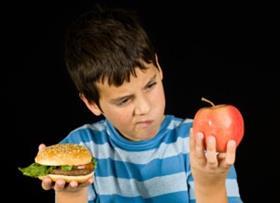
New research from free market think-tank the Institute of Economic Affairs (IEA) claims to contradict the belief that unhealthy diets are largely the result of economic privation.
The report, ‘Cheap as Chips: Is a healthy diet affordable?’, has analysed data from UK supermarkets Tesco and Asda to compare the price per edible weight of 78 common food and drink products.
The study showed that the cheapest ready-meals, pizzas, burgers and sugary breakfast cereals cost more than £2 per kilogram, less than most fruit and vegetables.
The report’s author Christopher Snowdon, who is the director of lifestyle economics at the IEA, said that the notion that obesity and poor nutrition were principally a result of low incomes was now “untenable”.
He concluded that a diet including the government’s recommended five portions of fruit and vegetables would cost just 30p.
The report was instantly criticised by health campaigners who pointed to the frequent promotions on healthy foods by supermarkets, the millions spent on junk food advertising by the multinationals and the use of popular characters to attract children.
Malcolm Clark of the Children’s Food Campaign told the Daily Mail: “You have to wonder whether the IEA has actually ever set foot in a supermarket, especially with kids in tow. On average, 40 per cent of the food UK shoppers buy is on promotion, and typically much of those special offers and end-of-aisle displays are for foods high in fat, salt or sugar.”
The debate comes at a time when many health campaigners are arguing for a tax on unhealthy products, not least on sugary drinks, to improve the state of the nation’s health.
However, anti-sugar tax campaigners have hit back at the proposal and have been quick to laud the IEA’s report.
Snowdon stated that such a tax would likely be ineffective. “Given the relatively high cost of junk food, it is unlikely that taxing unhealthy food or subsidising healthy food would change people's eating habits,” he said.
Anti-sugar tax campaigners have frequently claimed that Mexico’s introduction of a tax on sugary drinks in 2014 has been a failure, despite the fact that sales fell by 5.5 per cent in the first year and 9.7 per cent in the second year.



